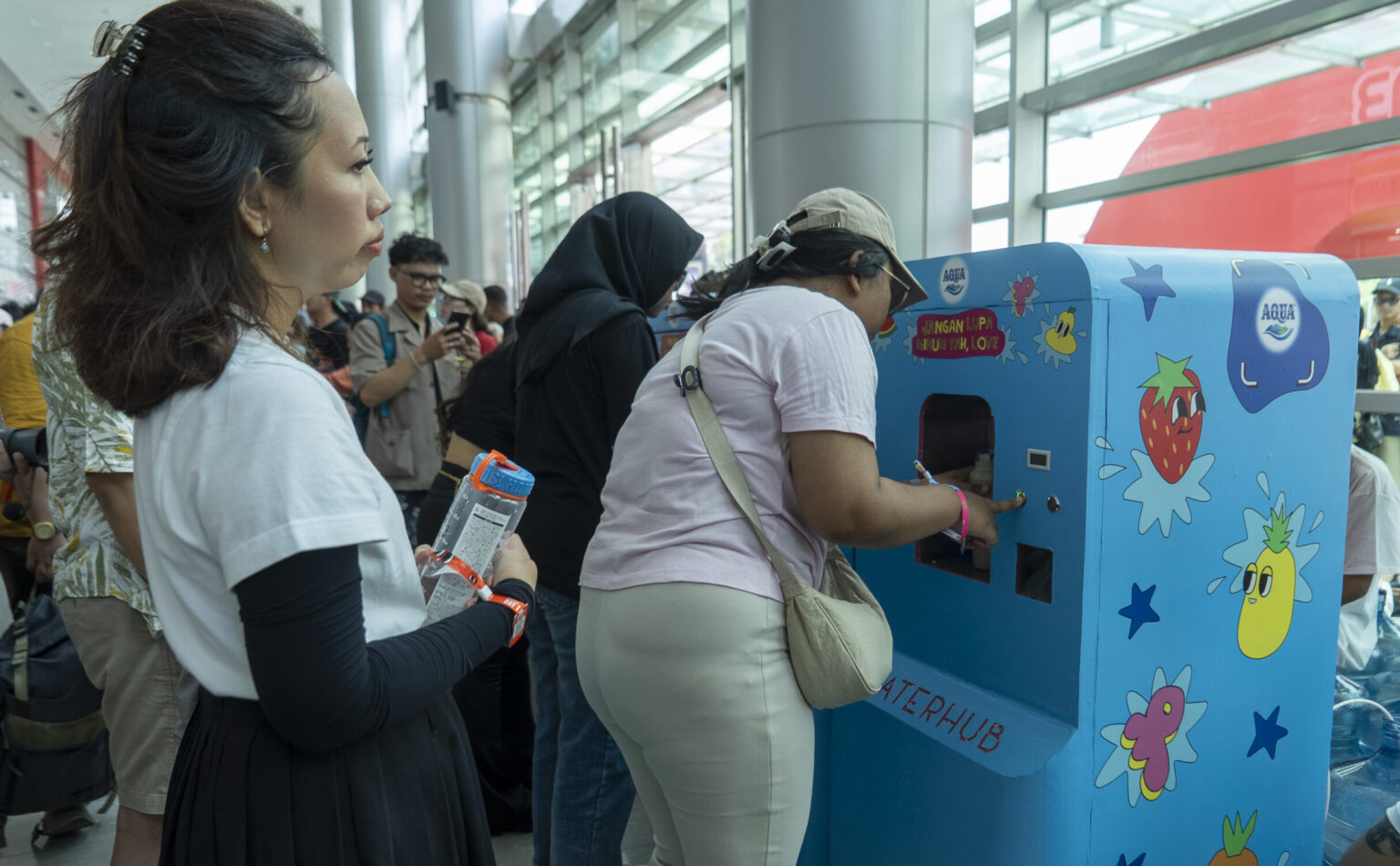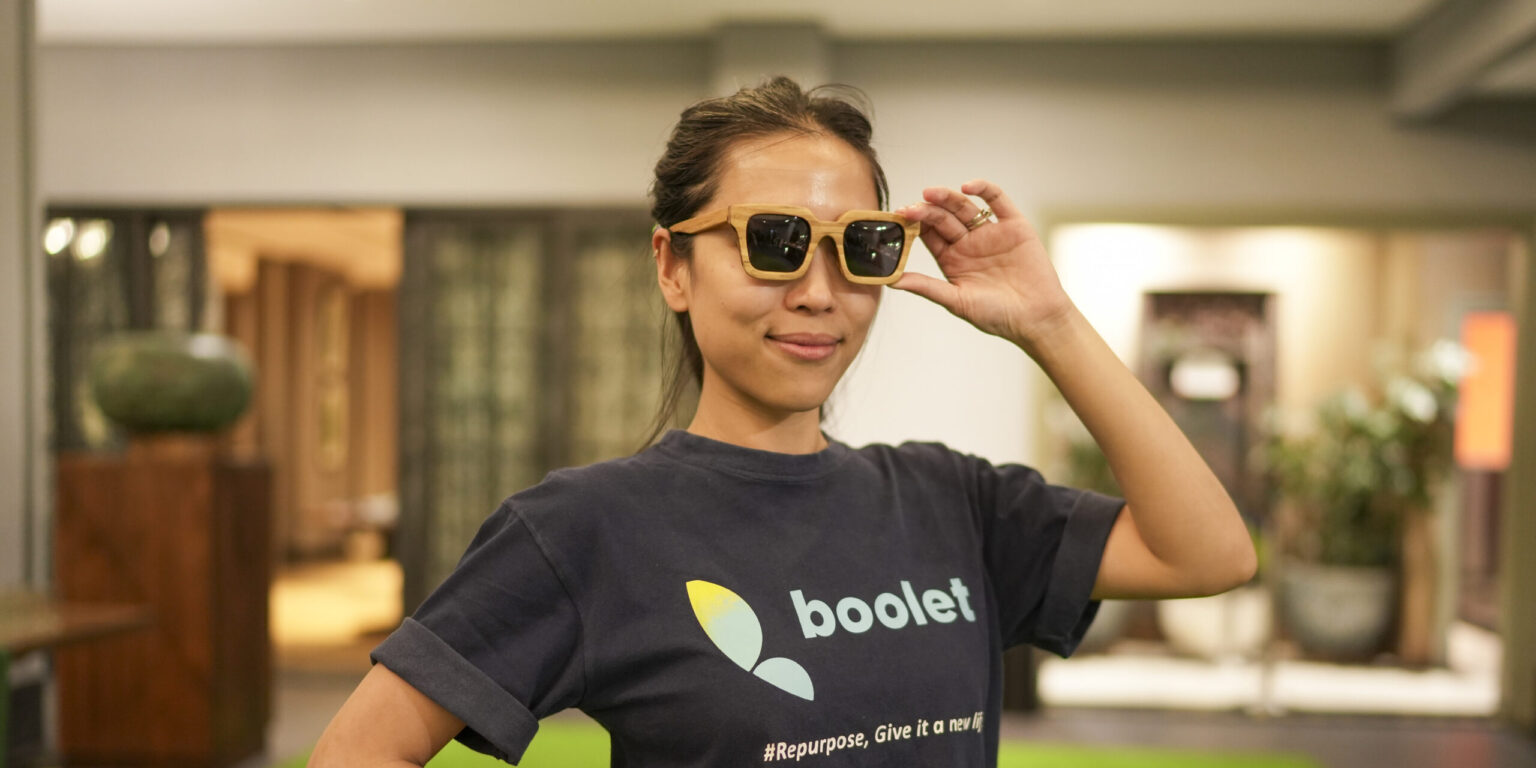
Indonesians have a deep love for fried foods, from crispy tempeh to golden banana fritters, consuming an average of 10 kilograms of cooking oil per person annually.
However, if poured down drains, cooking oil can form into fatbergs that clog pipes and sewers, pollute waterways and harm fish.
Greenia, a sustainable waste start-up, is tackling this environmental challenge by buying used cooking oil from households, restaurants and mosques. It then sells the oil to international companies which turn it into sustainable aviation fuel, a renewable substitute for conventional jet fuel that can significantly reduce carbon emissions.
“Do not throw your cooking oil down the drain, it damages your pipes and harms the environment,” says Hafirza Furqan, the Strategic Partnership and Community Development Associate at Greenia.
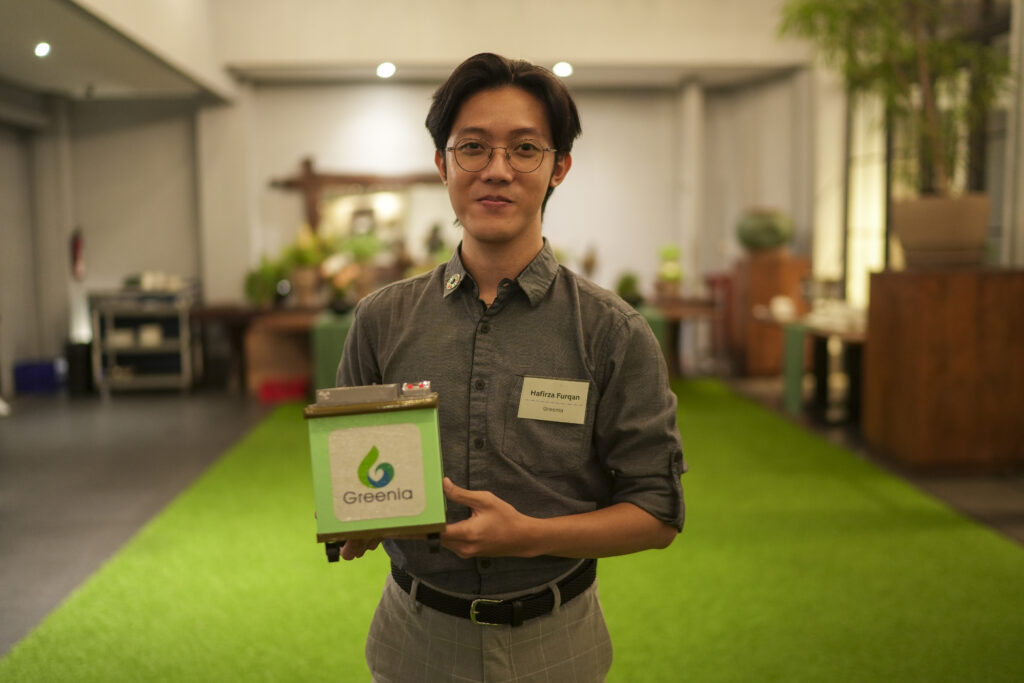
Greenia was one of 29 start-ups at an event on the state of green innovation in Indonesia held by the KINETIK Sweef Entrepreneurs Program in Jakarta on June 2.
The event featured a speed-dating style session Meet the Entrepreneurs Driving Change, where start-ups were invited to showcase their green solutions, discuss the challenges they faced and connect with potential partners.
Greenia and the Depok city government have launched a program where 22,000 households are trying to set a national record by swapping used cooking oil for clean oil and raising awareness about the environment and food security.
Mr Furqan said Greenia hoped to one day produce its own biofuel and was in communication with leading Indonesian universities.
“We are trying to build our own refinery in Cilacap but we must have a huge amount of investment,” he says.
A panel at the event discussed the opportunities and challenges faced by green innovators in Indonesia.
The panellists said investors needed to look beyond short-term returns when supporting businesses creating real, lasting change.
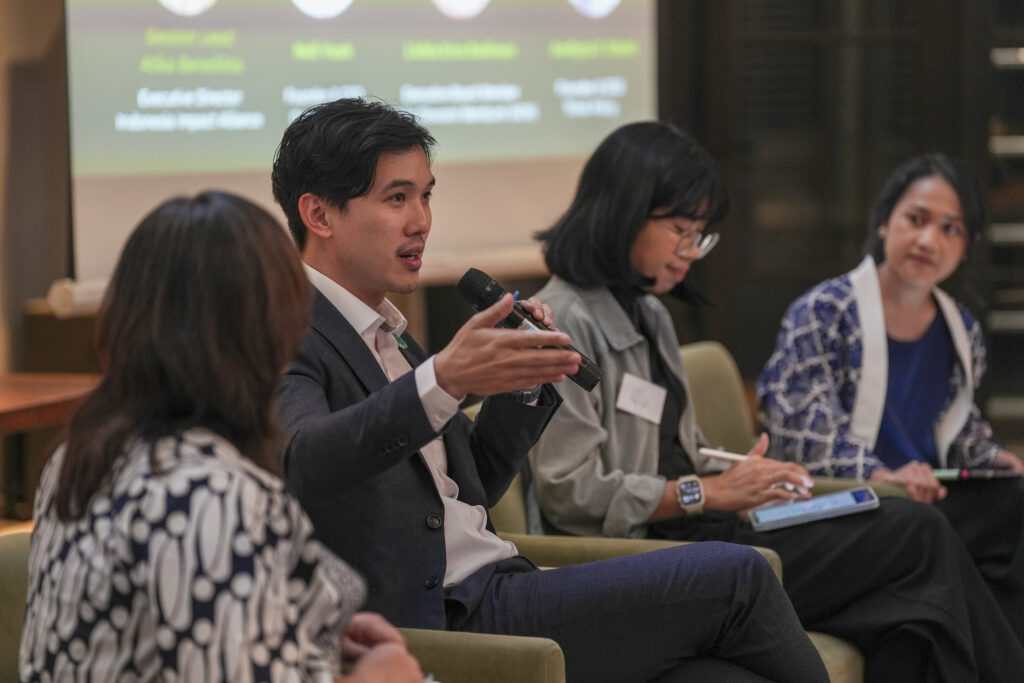
Neil Yeoh, the Founder and CEO of OnePointFive, an environmental services firm that helps businesses with green skills, said both entrepreneurs and investors needed support and training.
He said investors needed to understand local context and start-ups needed to understand what climate finance was available to bridge funding gaps.
“A lot of people don’t know what these stages of finance are to bridge what we call the valleys of death,” Mr Yeoh said.
“For a climate solution, even a clean energy startup, to go from start-up funding, venture funding grants to project finance funding, these bumps along the way can stop some of the best solutions from meeting their potential, because of a lack of understanding on both sides.”
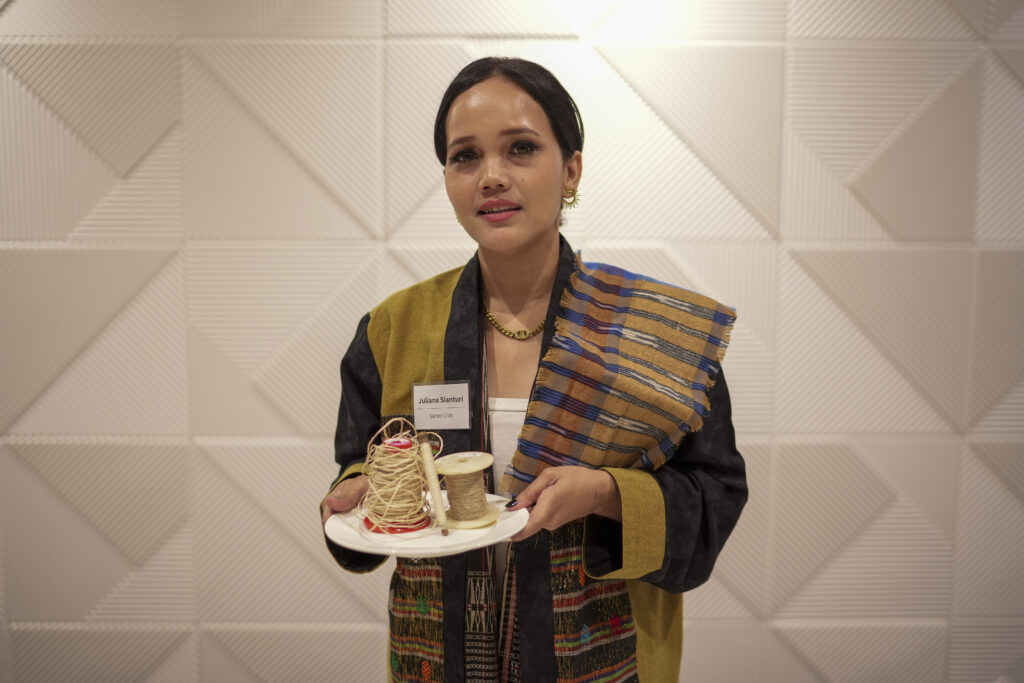
Juliana Sianturi is the founder of Saree Ulos, a start-up that turns agricultural waste into yarn.
This yarn is then used to make ulos, the traditional hand-woven cloth of the Batak people in North Sumatra, which is used in important life ceremonies such as weddings and funerals and has deep cultural significance.
Ms Sianturi says Saree Ulos partners with universities with the machine technology to turn fibre from banana, pineapple and palm oil agricultural waste into high-quality thread.
If dumped improperly, palm oil waste can pollute waterways, release methane and degrade soil. Saree Ulos reduces agricultural waste, preserves the art of tenun (weaving) ulos and creates new opportunities for local communities by tapping into the demand for eco-friendly products.
“We want to make the lives of our weavers better,” Ms Sianturi says. “We have a mission – innovation based on sustainability.”
Ms Sianturi dreams of one day finding a global audience for Saree Ulos’s innovative textiles.
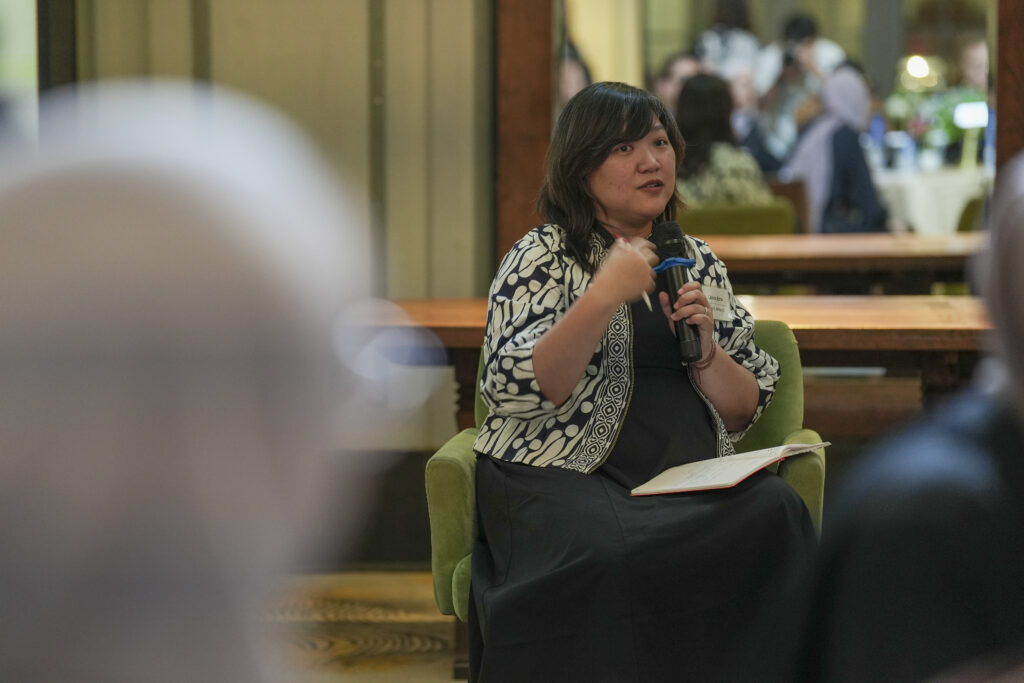
Lishia Erza Budiman is an executive board member of Koalisi Ekonomi Membumi, which supports local entrepreneurs to grow green, regenerative and community-driven enterprises, helps mobilise investment and advocates for policies at national and local levels to enable a just energy transition.
She encouragea start-ups to work together to advocate for policy change.
“If you are a climate tech, climate-smart agriculture startup, you’re a waste management startup, if there are at least 100 or 200 of you saying the same thing, then the government might start listening and say ok, maybe we have a problem we need to address there,” Ms Budiman said during the panel discussion.
“You can also build your nation by participating from where you are, you don’t have to be a politician to build your country.”
Every year Indonesia produces thousands of tons of single-use chopsticks and skewers.
In Jakarta, these often end up in landfill or as litter in the environment. As they are sharp and difficult to process, skewers also pose a risk to waste management workers.
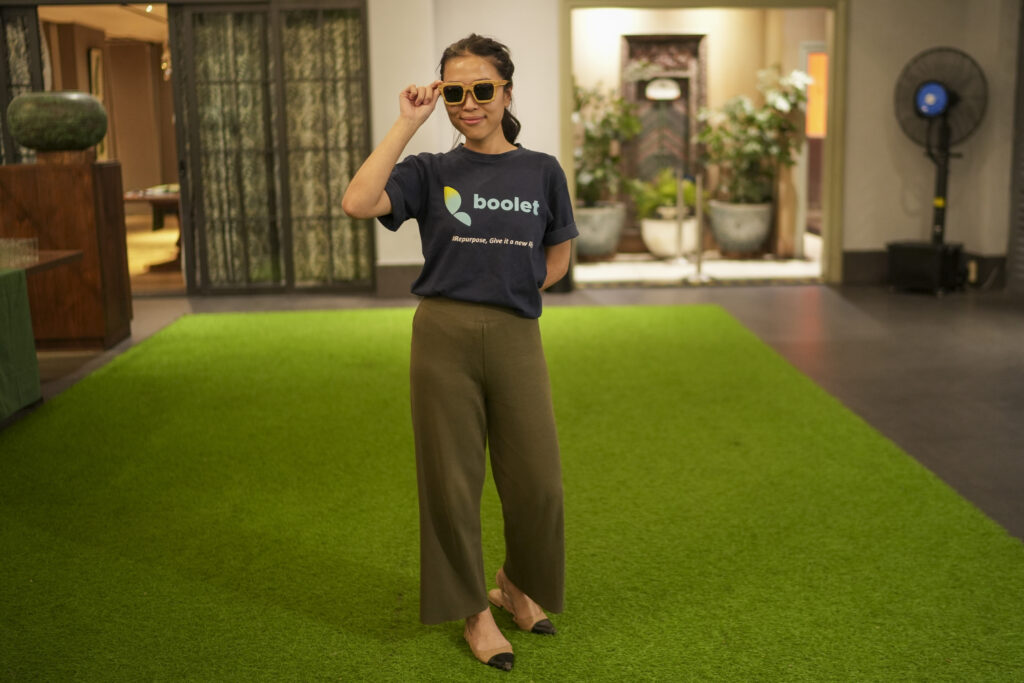
“Indonesia has more than 200 types of satays so that is a lot of satay sticks,” says Denisa Denisa, the Chief Marketing Officer at Boolet.
Founded in 2022, Boolet is a start-up that collects used chopsticks and skewers and turns them into trendy sunglasses, chessboards, phone stands, watches and furniture.
Ms Denisa said Boolet worked with waste management companies such as Rekosistem, Duitin and Jangjo, which collected used chopsticks and skewers for the start-up.
Boolet then provides these to artisans from Jepara – a Javanese city famous for furniture and woodcarving – who craft them into wooden lifestyle products.
“One of the key challenges is to educate the community that yes, you can have furniture from used chopsticks. It’s so far out for them,” says Boolet CEO Cindy Susanto.

